第14章
THE CIRCASSIAN BEAUTY
Captain Heideck's statement that he travelled for a Hamburg firm was not really an untruth.As a matter of fact he was engaged in commercial undertakings, which served as a cloak for the real object of his travels.
He had been commissioned by the chief of the General Staff to study the Indian military organisation, and, in particular, the strategic importance of the North-west frontier, and for this purpose unlimited leave had been granted him.
But the General had expressly stated to him--"You travel as a private gentleman, and should you come into conflict with the English, we shall in no manner accept responsibility for your actions and adventures.We furnish you with a passport in your own name, but, of course, without denoting your military rank.It is also a matter of course that we should not fail to disclose it in case inquiries are addressed to us in this regard.In a certain sense you may be said to travel at your own risk.Your own tact must be your safest guide."Hereupon Heideck entered into correspondence with his uncle, and received from him the necessary letters of introduction to his Indian agents.He reached the northern provinces by way of Bombay and Allahabad, visiting on the way all the more important garrison towns--Cawnpore, Lucknow, Delhi, and Lahore.After finishing his business in Chanidigot, his intention was to proceed further north, making his way to Afghanistan by way of the Khyber Pass.It was purely with a view to this journey that he had wished to become more intimate with the Russian.He was absolutely certain that the Russian had received a commission from his Government similar to his own, and certain hints that the Prince had let drop strengthened his opinion that the latter intended to take the same route as himself.Accordingly, it could only redound to the advantage of the German officer if he joined his Russian comrade, who would be in a position to procure him valuable introductions when once on Russian territory.
When Heideck woke early the next morning the Prince's potent bowl of the evening before made itself perceptible in various disagreeable after effects; but the cold bath that Morar Gopal got ready for him, added to a cup of tea, put him on his legs again.
It was an Indian morning of dazzling beauty into which he stepped.
February in the Indus Valley in 29 degrees longitude has a temperature like that of May in Rome.In the hours of midday the thermometer usually rises to 100 degrees Fahr.; but the evenings are refreshingly cool, and the nights, with their damp fogs, even appreciably chilly.
Heideck made his toilet on this morning with special care, for he had been invited to a conference with the Minister of the Maharajah, in order to negotiate with him about some indigo business.
The Minister lived in a house on the outskirts of the town.It was a one-story building, with broad airy verandahs, situate in the middle of a large garden.When Heideck arrived, the staircase of the entrance hall was occupied by a crowd of divers people waiting to be received.But he, as a representative of the white race, was saved the tiresome annoyance of waiting his turn.The porter, dressed in white muslin, and adorned, as a sign of his office, with a broad red scarf, conducted him at once into the Minister's study, a room furnished in European style.
It was only in his outward appearance, namely, his colour and his features, that the Minister looked like an Indian.Both dress and manners were those of a Western diplomatist.Giving Heideck his hand, he told him that His Highness himself wished to negotiate with him about the indigo business.
"The price you intend to pay is exceedingly low," he whispered in a tone of disapproval.
Heideck was evidently prepared for this objection.
"Your Excellency may be right in saying that the price offered is lower than in former years; but it is still very high, if the changes which have since occurred in the market values are taken into consideration.In Germany a substitute has been found in aniline, which is so cheap that within a measurable distance of time no indigo whatever will be bought.If I may be permitted to give His Highness any advice, I would recommend him in the future to establish an industry instead of planting indigo.""And which, may I ask, are you thinking of?""Oil mills and cotton mills would appear to me to be the most profitable.You could with them meet both European and Japanese competition."An Indian servant came with a message, and the Minister invited Heideck to drive with him to the Maharajah.They entered an open carriage horsed by two quick Turkestan horses.The yellow uniformed coachman, who had an extraordinary likeness to a dressed-up monkey, clicked his tongue, and away they went through spacious grounds to the palace, whose white marble walls soon gleamed through the foliage of the palms and tamarinds.
During the short drive Heideck pondered on the innumerable battles that had seethed over this ground, before English sovereignty had, as it seemed, stopped for ever all religious struggles, all bloody insurrections, and all the incursions of foreign conquerors.Here, on this place, where Alexander the Great's invincible hosts had fought and died, where Mohammedans and Hindoos, Afghans and worshippers of the sun had fought their sanguinary conflicts, works of peace had been established which would endure for generations to come.It was a triumph of civilisation; and a student of India's historical past could scarcely fail to be impressed by it.